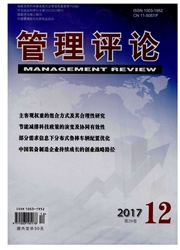

 中文摘要:
中文摘要:
金融风暴席卷全球后,国际资本流动的规模和方向都发生重大变化。中国宏观经济也在经受着一系列外部冲击的考验。本文首先分析了金融风暴下国际资本流动的现状及未来发展趋势;其次,在VECM模型基础上,运用脉冲响应和方差分解技术,以1982年至2007年的年度数据为样本,实证研究了国际资本流动对中国宏观经济的影响;进而,讨论了未来国际资本流动的变化对中国宏观经济的影响。本文的主要结论:预期未来私人资本净流入和长期资本净流入的减少将对我国经济增长造成不利影响,但同时可以缓解通货膨胀和人民币实际升值的双重压力。而短期资本净流入的预期减少对经济增长的不利影响不大,且由于滞后效应,其作用在2010年才会显现。最后,综合上述研究结果.提出了一些政策应对建议。
 英文摘要:
英文摘要:
As the financial turmoil originating from the sub-prime crisis in America has spread all over the world, the international capital flow altered a lot in respect to volume and direction. Such alternation has also affected economic status in China. In this paper, we first analyze the capital flow status in quo and economic prospect in future; then empirically analyze the influence of international capital flow to the Chinese economy by applying impulse response and variance decomposition in VECM model, Sampling from 1982 to 2007 annually. We draw some conclusions as follows: both the expected decrease in net private capital inflow and net long-term capital inflow have negative effect on economic growth, but can alleviate the inflation and real appreciation of RMB; expected decrease in net short-term capital flow has a bit side effect, which will be shown in 2010 due to time lags. We also make some proposals policy according to the conclusion above.
 同期刊论文项目
同期刊论文项目
 同项目期刊论文
同项目期刊论文
 Modeling technology adoptions for sustainable development under increasing returns, uncertainty, and
Modeling technology adoptions for sustainable development under increasing returns, uncertainty, and A Rough Set-based Multiple Criteria Linear Programming Approach for Improving Classification Perform
A Rough Set-based Multiple Criteria Linear Programming Approach for Improving Classification Perform Prediction the distance range between antibody interface residues and antigen surface using Multiple
Prediction the distance range between antibody interface residues and antigen surface using Multiple 期刊信息
期刊信息
